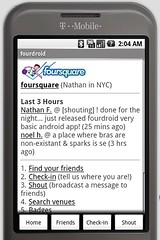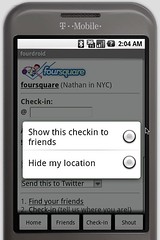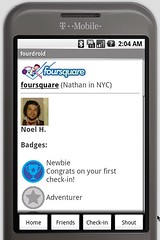I wrote these up quickly for a friend who needed some bullet points for a proposal, and so I thought I’d just share them here, as well. Please comment with your own experiences with Android #WINs and #FAILs.
- Development SDK is free, open-source and officially supported for Windows, Linux and Mac OS (iPhone is Mac OS only basically)
- Java is the foundation for Android development vs. Objective-C on iPhone: many more Java developers and more affordable; ALSO a number of existing open-source Java libraries can run on Android, specifically Apache Commons client library code
- Android devices have removable batteries and SIM cards and can be unlocked for use on other networks w/o breaking the law
- Android devices have Micro SD based storage that can be easily removed; good for both application data distribution and security reasons
- Android hardware supports a true digital compass (your software knows which direction your user is facing, not just GPS lat/lon), as well as (at least with G1 device) auto-focus 3 megapixel camera capable of barcode, fingerprint and human iris scanning
- Finally, custom version of the Android OS can be built that are purpose-built, stripped down and customized for certain applications



